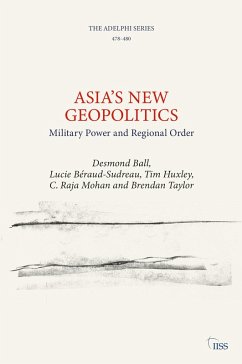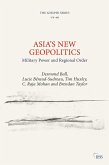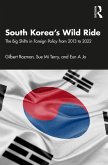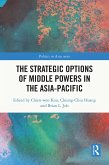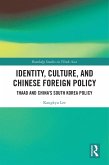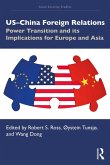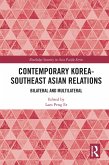As Asia's leaders seek to rebuild their economies and societies in the wake of COVID-19, they would do well to reflect upon the lessons offered by the pandemic and their applicability in the strategic realm. The societies that have navigated the crisis most effectively have been able to do so by putting in place stringent protective measures. Crisis-management and -avoidance mechanisms - and even, in the longer term, wider arms control - can be seen as the strategic equivalent of such measures, and as such they should be pursued with urgency in Asia to reduce the risks of an even greater calamity.
Dieser Download kann aus rechtlichen Gründen nur mit Rechnungsadresse in A, B, BG, CY, CZ, D, DK, EW, E, FIN, F, GR, HR, H, IRL, I, LT, L, LR, M, NL, PL, P, R, S, SLO, SK ausgeliefert werden.
'This Adelphi book accurately captures the present-day Asian anxieties over an unravelling regional order and a future filled with geopolitical strife and unknown dangers.'-- Yao Yunzhu, retired major-general, Chinese People's Liberation Army
'An important contribution to informed debate on the various visions for Asia's future strategic order. Its sub-regional approach allows for cogent analysis of the unique dynamic and circumstances prevailing in each sub-region, while at the same time offering identification of some of the common challenges and opportunities.'-- Marty Natalegawa, former foreign minister of Indonesia
'A sober assessment of how a number of factors, new and old, impact the state of geopolitics in the region. The in-depth and timely analysis of COVID-19, the lack of regional architecture, shifting balances of power and the intensification of rivalries and military build-ups - especially China's - serves as a warning of the potentially troubled future for this dynamic and strategically critical region.'-- Oriana Skylar Mastro, Stanford University and the American Enterprise Institute

